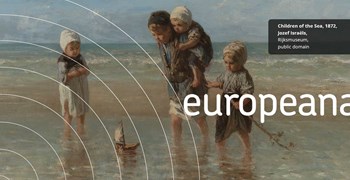W VERDI! Long live Verdi!
Verdi as a composer, Verdi and the Italian Risorgimento, Verdi as a farmer, Verdi in the movies, Verdi as national icon… How many performers can boast such a wide impact on fields other than the music? His portrait is everywhere: paintings, caricatures, postcards, stamps, dishes, cups, banknotes, …

Portrætter: Moderne Italien. Folkeakademiet Vangen… 26/3 14 | Severin Worm-Petersen, Norsk Teknisk Museum, CC BY.
Giuseppe Verdi (1813-1901) is undoubtedly one of the most important composer ever existed and a pop idol too. People is interested in his music and personal life made of tragic moments and big popularity, passionate love with the renowned soprano Giuseppina Strepponi and attention to the political issues of his times.
Verdi’s music and personality deeply influenced the culture in a crucial moment of the Italian history. Verdi went through almost a whole century during which Italy changed from a country subject to foreign rule to a unitary state. The composer followed the process with attention. This affected his art that was not intended for a small intellectual elite of people, far away from the problems and reality, but established a dialogue with the present and the current events. The opera “La battaglia di Legnano” (1849, lyrics by Salvadore Cammarano) has an obvious political message: the expulsion of Frederick I (also known as “Barbarossa”) symbolizes the banishment of the occupying foreigners from Italy.
One of his most popular composition, “Va, pensiero”, the chorus of the third act of the opera “Nabucco” that recalls the story of Jewish Diaspora after the destruction of the Salomon’s Temple in Jerusalem, was often intended as a metaphor of the condition of Italy. Italian irredentists used the slogan “W VERDI” (long live Verdi) that means “Viva Vittorio Emanuele Re d’Italia” (Long Live Victor Emmanuel King of Italy’, which referred to Victor Emmanuel II, king of Italy since 1861).
Considering such a rich personality, is very hard to enclose in a short post the rich career of a genius. Verdi was really prolific and wrote several grand operas and presented some of them in different versions. He achieved his first great success in 1842 with “Nabucco” that redeemed him from the unsuccessful “Un giorno di regno” premiered two years before: the composer decided to set to music the whole text of Temistocle Solera’s libretto fascinated by the verse “Va pensiero sull’ali dorate”. In the 80s an Italian journalist even proposed replacing with “Va, pensiero” the national anthem, written in the same period.
After this first great success, Verdi composed 12 operas in 7 years, more than one per year. Among these we can mention “I lombardi alla prima crociata” (1843, Solera), “Ernani” (1844, lyrics by Francesco Maria Piave), “I due Foscari” (1844, Piave), “Macbeth” (1847, Piave) e “Luisa Miller” (1849, Cammarano).
This period, that Verdi himself described as “years of prison” because of the intensive work he was forced to, ended in 1850 with the “Stiffelio” (Piave), that did not reach a great success.
The second half of XIX century opened with the so called “popular trilogy”: “Rigoletto” (1851, Piave), “Il Trovatore” (1853, Cammarano), and “La Traviata” (1853, Piave) that is stil one of the most performed operas today.
![[Enrico Caruso dans "Rigoletto" / dessins de Paul Charles Delaroche] | Delaroche, Paul Charles (1886-1914). Dessinateur, National Library of France, Public Domain Marked.](http://www.europeanasounds.eu/wp-content/uploads/2016/11/caruso.jpg)
[Enrico Caruso dans “Rigoletto” / dessins de Paul Charles Delaroche] | Delaroche, Paul Charles (1886-1914). Dessinateur, National Library of France, Public Domain Marked.
In 1855 in Paris, Giuseppe Verdi stages for the first time “I vespri siciliani” (lyrics by Eugène Scribe and Charles Duveyrier) and strengthens his celebrity with “Simon Boccanegra” (1957, Piave) and “Un ballo in maschera” (1859, lyrics by Antonio Somma).
The road to success of the Master Verdi proceeds with “La forza del destino” (1862, Piave), while the successive opera “Don Carlos” (1867, lyrics by Joseph Méry and Camille du Locle) was not as lucky as the previous. 1871 is the year of Verdi’s greatest masterpiece, “Aida” (1871, by Antonio Ghislanzoni).
![La forza del destino Opera di G. Verdi : [estampe] / A. Lecocq [sig.], National Library of France, Public Domain Marked.](http://www.europeanasounds.eu/wp-content/uploads/2016/11/La_forza_del_destino_Opera_...Lecocq_Charles_btv1b8437666w-487x700.jpeg)
La forza del destino Opera di G. Verdi : [estampe] / A. Lecocq [sig.], National Library of France, Public Domain Marked.
The career of Giuseppe Verdi got to conclusion with two masterworks, “Otello” (1887, lyrics by Arrigo Boito) and “Falstaff” (1893, Boito).
In 2013 Italy celebrated the bicentenary of Verdi’s birth with several public events that demonstrated the significance of this artist for our country.
The Istituto Centrale per il Catalogo Unico (ICCU) in cooperation with the Istituto Centrale per i beni sonori ed audiovisivi (ICBSA), Wikimedia Italia within Europeana Sounds project is organising on November 11th an edit-a-thon on the theme of Giuseppe Verdi about his figure, work, life, and the performers that perpetuates his uninterrupted inspiration.
by Marzia Piccininno and Elisa Sciotti, Istituto Centrale per il Catalogo Unico












